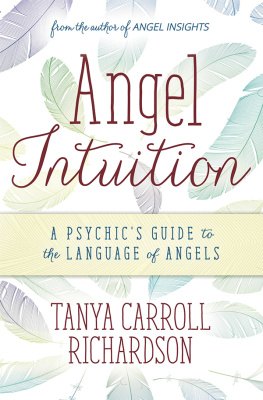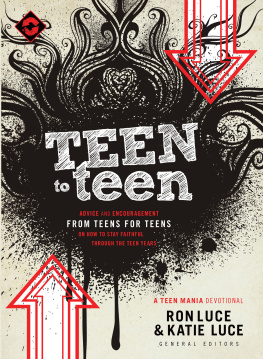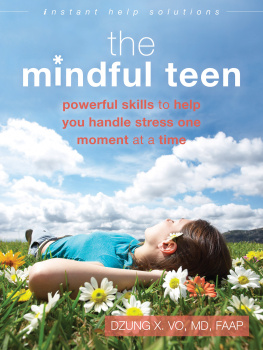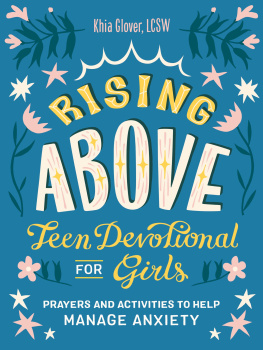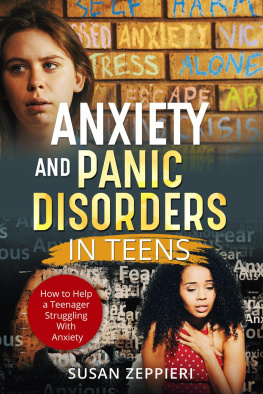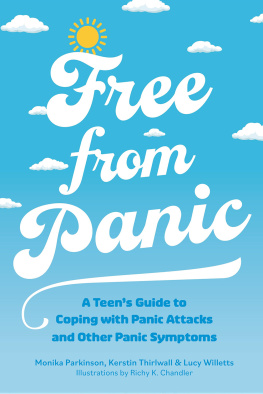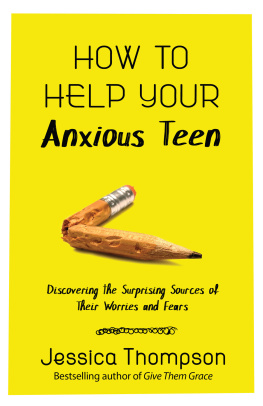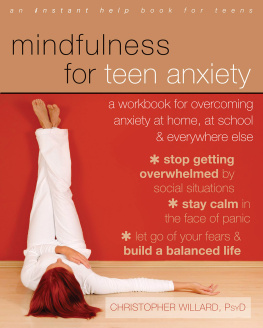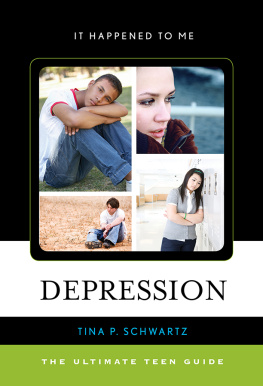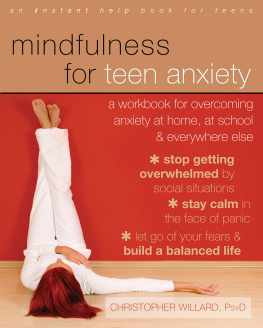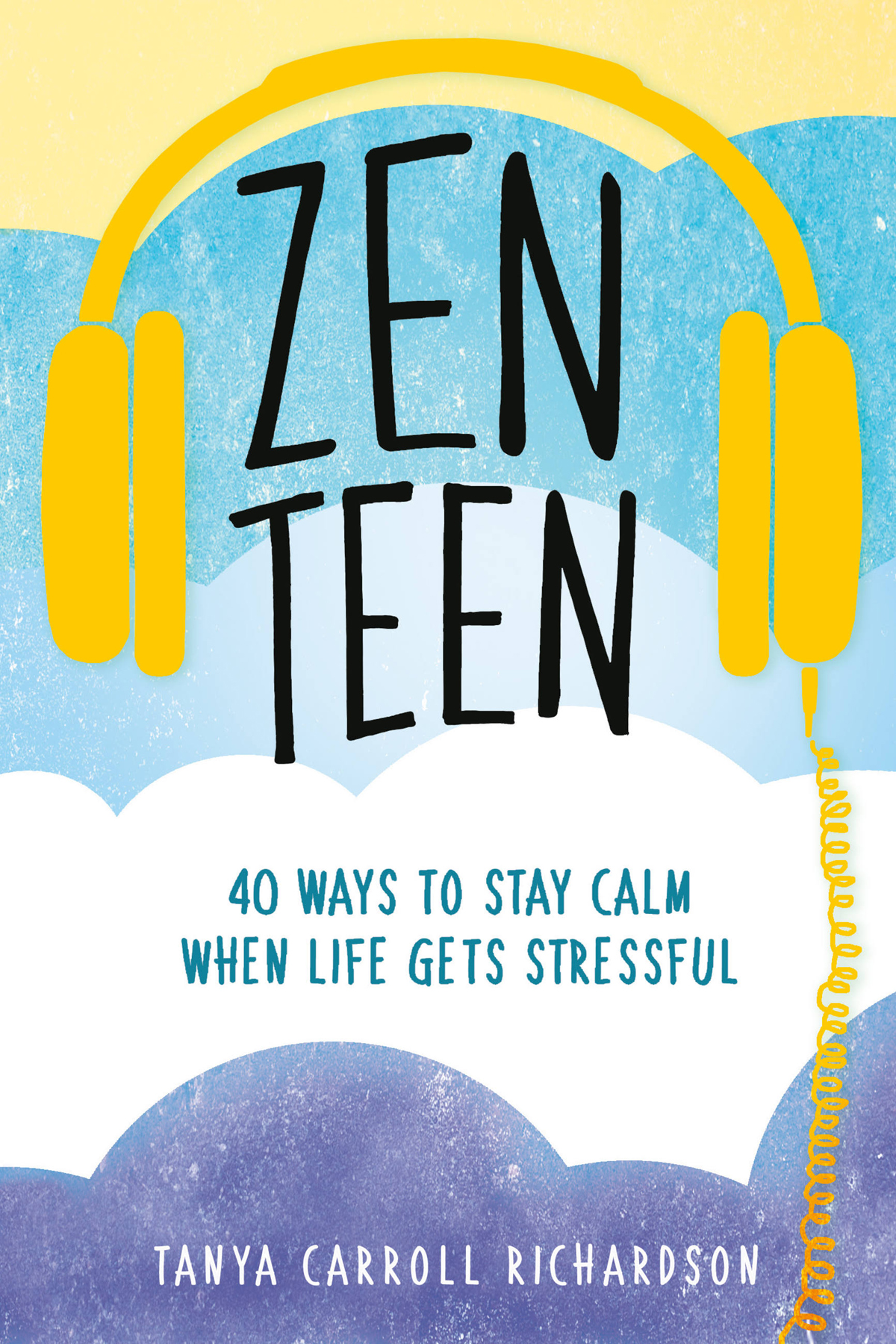Copyright 2018 Tanya Carroll Richardson
Hachette Book Group supports the right to free expression and the value of copyright. The purpose of copyright is to encourage writers and artists to produce the creative works that enrich our culture.
The scanning, uploading, and distribution of this book without permission is a theft of the authors intellectual property. If you would like permission to use material from the book (other than for review purposes), please contact permissions@hbgusa.com. Thank you for your support of the authors rights.
Seal Press
Hachette Book Group
1290 Avenue of the Americas, New York, NY 10104
www.sealpress.com
@sealpress
First Edition: September 2018
Published by Seal Press, an imprint of Perseus Books, LLC, a subsidiary of Hachette Book Group, Inc. The Seal Press name and logo is a trademark of the Hachette Book Group.
The Hachette Speakers Bureau provides a wide range of authors for speaking events. To find out more, go to www.hachettespeakersbureau.com or call (866) 376-6591.
The publisher is not responsible for websites (or their content) that are not owned by the publisher.
Library of Congress Cataloging-in-Publication Data
Names: Richardson, Tanya Carroll, 1974 author.
Title: Zen teen: 40 ways to stay calm when life gets stressful / Tanya Carroll Richardson.
Description: Boston: Seal Press, [2018] | Audience: Age: 12 and Identifiers: LCCN 2018007877| ISBN 9781580057820 (pbk.) | ISBN 9781580057837 (ebook)
Subjects: LCSH: AwarenessJuvenile literature. | Self-consciousness (Awareness)Juvenile literature. | Resilience (Personality trait) in adolescenceJuvenile literature.
Classification: LCC BF311 .R4877 2018 | DDC 155.5/19dc23
LC record available at https://lccn.loc.gov/2018007877
ISBNs: 978-1-58005-782-0 (paperback), 978-1-58005-783-7 (ebook)
E3-20180802-JV-PC
H ello! Tanya Carroll Richardson here, the author of this book. Although I hesitate to call myself the author because so many of the concepts in Zen Teen are drawn from ancient wisdom that has been updated, by myself and many others, to fit our modern times.
As I write this note, Im in my early forties (I know that seems incredibly old to you right now, but when you get to be my age it wont seem so old, and you will realize that in many ways youre still the same person you were at seventeen). Ive learned a couple of things for sure about the pressures and challenges of everyday life. I feel confident that when I share what Ive learned with you, you can experience new levels of peace and lasting happiness so that when you face a setback, detour, or disappointment, you will feel more prepared to overcome it. Youre already stronger and more capable than you know. (This is a wonderful lesson life teaches us all.) My hope is that this book will help you be more open to joy during the good times and more resilient when life is (really, really) hard.
The year I turned eighteen was probably the most challenging time of my life, and I admit I felt very lost. My mother died when I was seventeen, and my last two years of high school I didnt concentrate on schoolwork. In fact, I found out on the final day of high school that I had failed a chemistry course and wouldnt graduate with my class. That same week, I had to get an apartment and a job and start life on my own as an adult. To make matters even more challenging, I had developed an eating disorder my senior year of high school and wasnt physically or emotionally healthy. I got through it with the help of loud music and good friends, and some of the practices youll find in this book. By learning how to manage stress and overcome anxiety, I eventually took a summer course to finish high school, enrolled in college, and went on to get a masters degree. I moved to London and then New York City, where I have worked as a writer for twenty years. I am married to the love of my life, and I can truly say that I am mentally and physically healthier (and happier) than I ever thought possible during my teen years.
I wish Id had a book like Zen Teen in my life back when I was struggling with intense emotions and anxiety about the future. But since I dont have a magic time machine to take me back so I can tell my eighteen-year-old self all these mindfulness practices (wouldnt that be cool?), I did the next best thing: I wrote them down in a book for you.
Your life might be going great right now, and if it is, good for you! For those of you who feel the powerful pressure of everyday realities, I get it. The goal of this book is to show you how to make the most of the good times, help you find more meaning in each day, and teach you to navigate the stressful moments and challenging emotions we all sometimes experience. You cant always change what happens to you, but you can change your reaction to what happens and learn coping skills to make the best of any situation.
Somehow life has magically sent me everything I needed to face my challenges. The tools in this book should help you meet your own challenges.
As a teen, you need extra love, gentle support, and an optimistic attitude. Most of all, you need to stay mindful. That will help you cultivate more calm and claim more confidence. Life is an adventure, and I want yours to be inspiring, exciting, and full of assurance that you are ready for whatever comes.
Love,
Tanya
A ll the sections in this book have one thing in commonthey each encourage you to be more mindful. Doctors, CEOs, athletes, actors, and teachers are always talking about how mindfulness changes health, businesses, performance, the creative process, and lives. But if you asked 100 people who practice mindfulness to tell you exactly what mindfulness means, you would probably get 100 different answers. Annoying, right? Sometimes its really comforting to know that 2 + 2 = 4!
Its pretty funny that everyone has their own ideas about what mindfulness means because the whole point of mindfulness is to simplify life. Less confusion, less drama, less stress. But stick with it because when the concept becomes clear, everything else will, too. You might think of mindfulness as cleaning out the closets of your mind. Or you could picture a garden that is overrun with weeds, and think of mindfulness techniques as the tools that help you trim those weeds back.
You know that relaxed, accomplished, peaceful feeling you get when you walk into a room that used to be messy and is now clean and tidy? Thats the same feeling mindfulness brings.
Mindfulness is about creating space in our minds and our lives, some breathing room for pauses, rest, and reflection. More of the good stuff that helps us mindfully craft our livesjust like a potter crafts a wet lump of clay into a beautiful bowlso we are happier and calmer and feel like we have some control in navigating our journey. Every exercise in this book is designed to make you more mindful. Just as you developed healthy habits when you were a kid, such as learning how to share or brushing your teeth, you can also develop the habit of mindfulness now as a teen.
If you did ask 100 people what mindfulness is, what are some of the typical answers you might receive? Mindfulness could be described as being in the moment, being purposeful, being present, being nonjudgmental, being self-reflective. Its all those things. Most of all, though, mindfulness is about being awareaware of what is happening right now, aware of your thoughts, aware of the possibilities, and aware of any patterns in your life you would like to change or end altogether.


